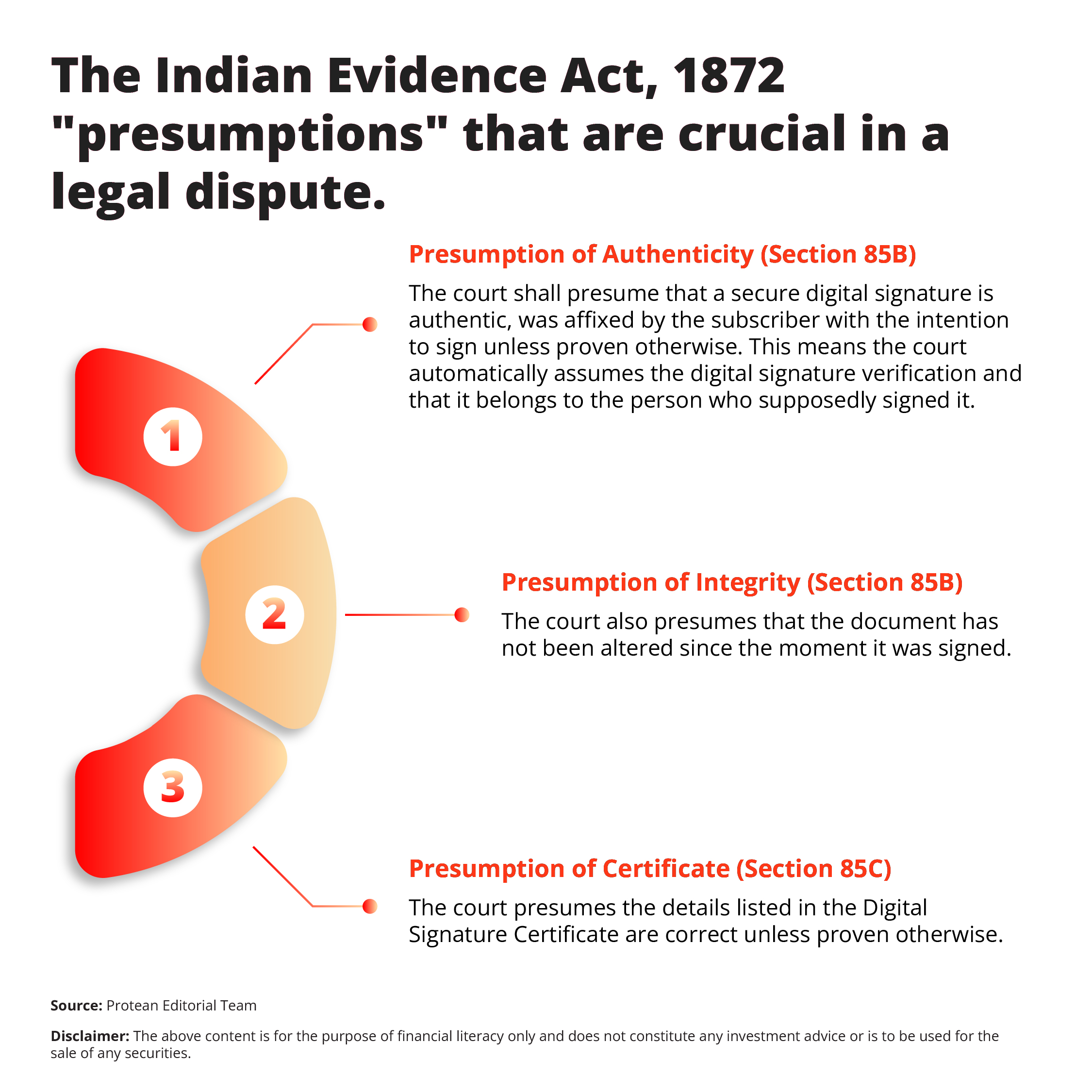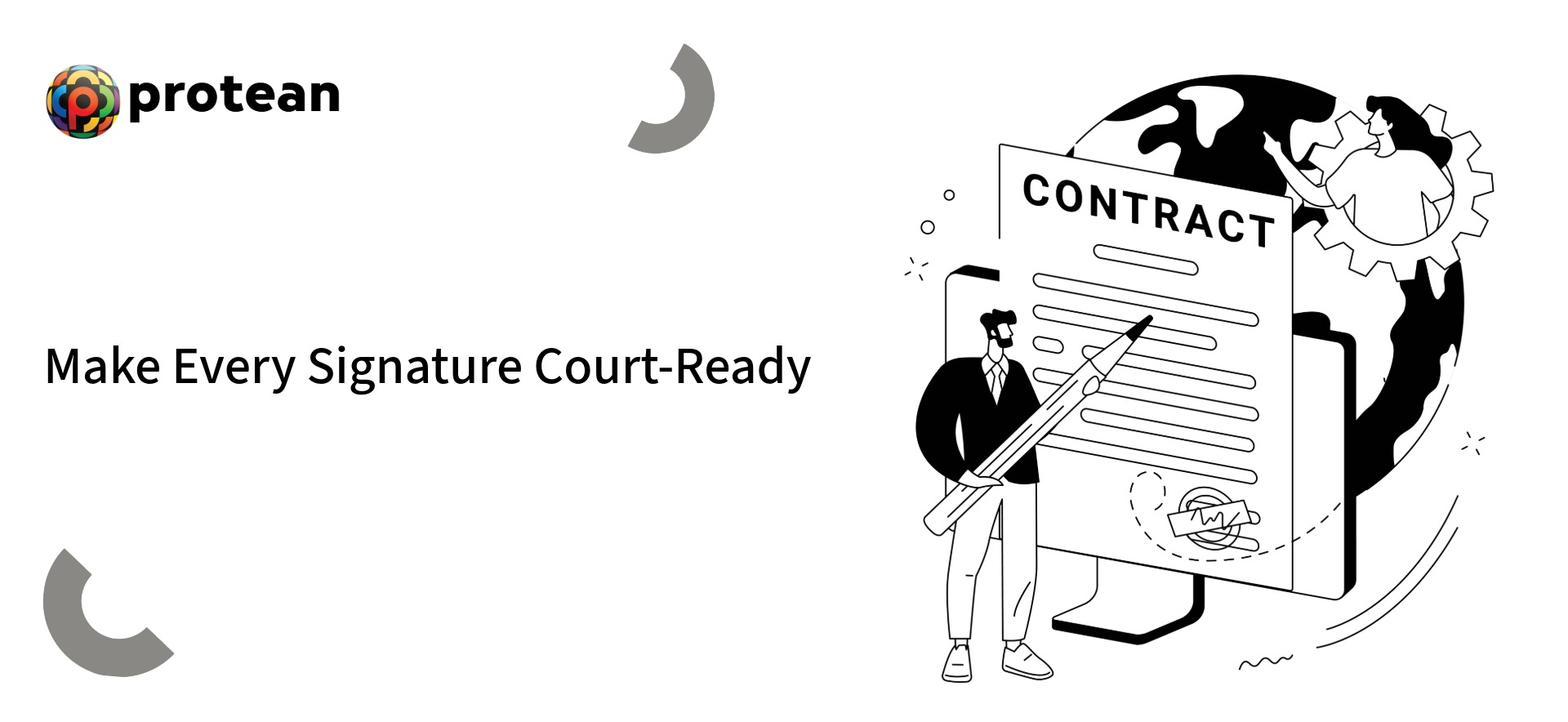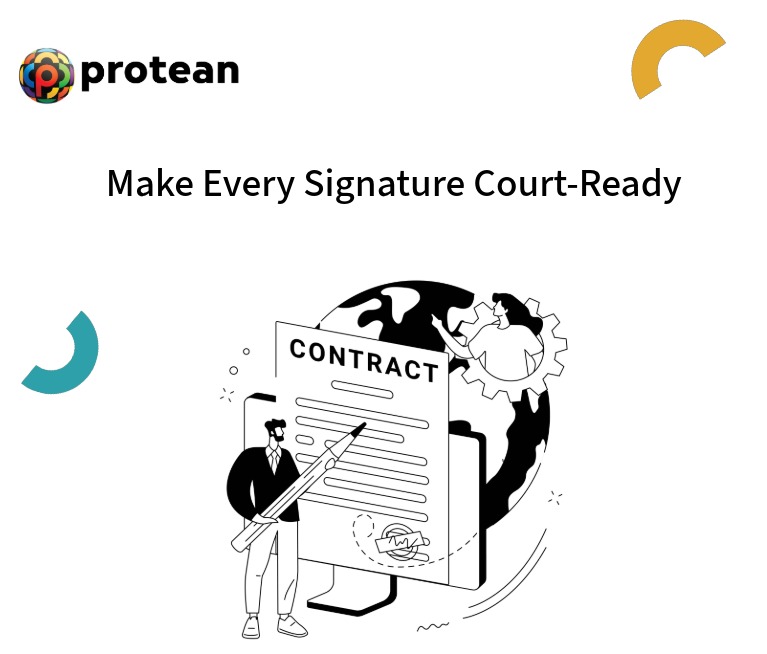In the digital world, many documents such as loan agreements, offer letters, and property-lease documents can be signed using digital signatures, subject to regulatory and organisational acceptance. A digital signature is quick, efficient, and paperless. However, there is a nagging question in the back of our minds.
Is this digital click as legally binding as a pen-and-ink signature? Yes, provided it is issued by a licensed certifying authority and complies with the provisions of the Information Technology Act, 2000. Digital signature verification is designed to be robust and efficient.
A digitally signed document is generally considered legally robust and secure, and can be presented as evidence in a court of law in India. However, its validity depends on verifiability, compliance with relevant legal requirements, and acceptance by parties involved. So, is there a need for a digital signature verification online mechanism?
Here is more on the legal framework of a digital signature and how you can confirm its authenticity.
Recognising Digital Signatures as Lawful Evidence
A digital signature verification is backed by a powerful legal framework in India as per the Information Technology (IT) Act, 2000. This landmark legislation can address two main legal aspects regarding digital signatures.
Legal Equivalence (Section 5, IT Act)
According to the IT Act 2000, where any law requires a signature, that requirement is satisfied if the document is authenticated by a reliable digital signature. Thus, a digital signature holds the same legal status as a traditional handwritten signature.
Admissibility in Court (Section 65B, Indian Evidence Act)
A digitally signed document is admissible as evidence in court, provided it is accompanied by a certificate under Section 65B of the Indian Evidence Act, as prescribed by law..
Therefore, in essence, the court does not just "accept" a digital signature, but it is legally bound to recognise it as a valid form of authentication.
Why Digital Signature Verification is Non-Negotiable

This is a massive legal advantage in terms of digital signature verification. The burden of proof is flipped. Instead of you having to prove the signature is real, the other party has to prove that it is not.
This legal presumption, however, is only applicable if you can prove the signature is secure and verifiable. This is where digital signature verification online comes in as the most important step.
A verifiable signature can provide a complete "audit trail" that shows the information about:
- Who signed: Verifying the identity of the signer (e.g., through Aadhaar eSign or a valid Digital Signature Certificate).
- What was signed: Locking the document so that any change, even adding a single space, is detectable.
- When it was signed: Creating a secure, unalterable timestamp.
Business solutions like eSignPro by Protean eGov Technologies Ltd are crucial in this case. eSignPro is designed to create a legally watertight audit trail for every transaction. It can integrate with secure verification methods like Aadhaar eSign, ensuring every digital signature it facilitates is backed by a verifiable, court-admissible record.
When Does a Digital Signature Fail?
A digital signature has a legal power that can be successfully challenged and invalidated in court under specific circumstances. A signature can fail if under the following circumstances:
Use of an Expired or Revoked Certificate
A digital signature is only valid if the Digital Signature Certificate (DSC) was active at the moment of signing. If the certificate has expired or been revoked before signing (e.g., due to a compromised private key) and no trusted timestamp exists, the signature is invalid.
Coming from an Unlicensed Certifying Authority
A DSC should be issued by a licensed Certifying Authority (CA). A signature from a self-signed or unrecognised provider may not receive the legal presumptions.
Tampered Document
The digital signature is used to ensure document integrity. However, if a digital signature verification check shows that the document was altered after signing, the signature would be invalidated.
No Intent Of Entering Into An Agreement/Coercion
This is similar to a wet signature. A digital signature can be challenged if the signer can prove they were forced to sign (coercion) or had no intention of entering into a binding agreement.
Under Statutory Exceptions
The IT Act itself has excluded certain documents from its purview. For example, you cannot use a digital signature for wills, trusts, powers of attorney, or contracts for the sale of immovable property.
Failure to Produce a 65B Certificate
In this case, the signature itself might be valid. However, the electronic document containing it may be deemed inadmissible if not accompanied by the required certificate under Section 65B of the Evidence Act.
Conclusion
So, does a digitally signed document hold up in court? The answer is a straight yes, but with a crucial condition. Its strength is not in the visual signature on the screen but in the verifiable, cryptographic, and auditable trail behind it.
A signature that cannot be verified is just a picture. A secure digital signature, backed by a proper online verification process and a robust cryptographic audit trail from a trusted platform like eSignPro, is one of the strongest pieces of legally admissible evidence you can have.
Frequently Asked Questions (FAQs)
What is the difference between an "electronic signature" and a "digital signature"?
"Electronic signature" is a broad legal term for any electronic sound, symbol, or process used to show intent to sign. It can be a simple typing your name or even a scanned image. However, a digital signature is a specific, highly secure type of electronic signature that uses a cryptographic system, a Digital Signature Certificate, and a verifying authority to ensure authenticity and integrity. The IT Act gives this secure digital signature the strongest legal presumptions.
What does the green checkmark or yellow question mark on a PDF signature mean?
A green checkmark means that your PDF reader has successfully validated the signature. It also confirms that it trusts the Certifying Authority, and confirms the document has not been tampered with. A yellow question mark means the signature's validity is "unknown." This means that your computer does not automatically trust the signer's certificate. A digital signature verification process is needed to establish that trust.
What is an audit trail and why does it matter?
An audit trail is a secure log that records every step of the signing process. This includes, who signed, when, from what IP address, and what authentication method was used (like an Aadhaar OTP). For platforms like eSignPro, this trail is the ultimate proof needed in a legal dispute, as it directly supports the authenticity of the digital signature and the signer's intent.

